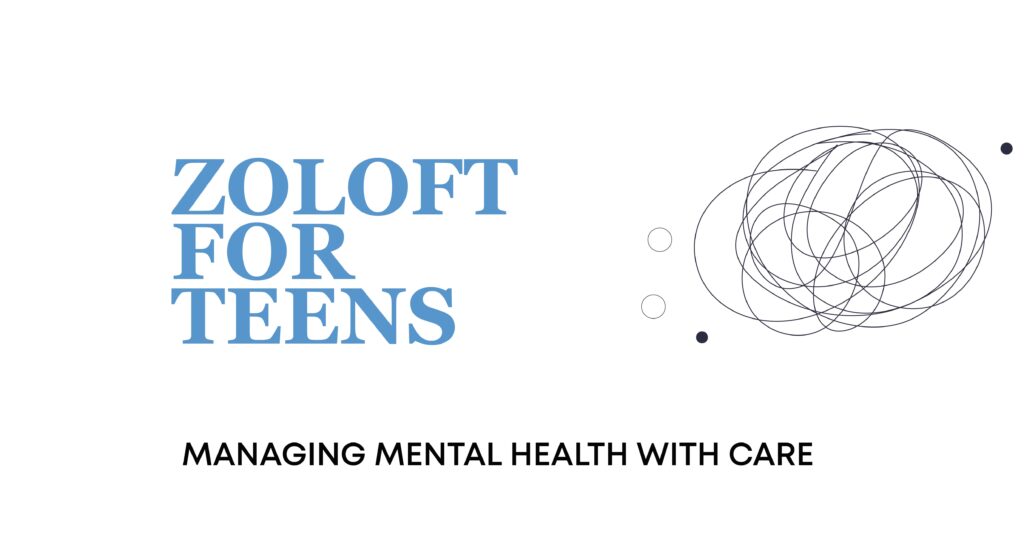Mental health challenges are becoming increasingly common among adolescents, with conditions like depression and anxiety significantly impacting their quality of life. For many families, exploring treatment options is a critical step toward helping their teen regain balance and stability. One such option is Zoloft for teens, a commonly prescribed antidepressant that has shown promise in addressing symptoms of depression and anxiety. While effective, this medication must be approached with caution, care, and professional guidance.
Understanding Zoloft for Teen Depression
Zoloft, also known by its generic name sertraline, belongs to a class of medications called selective serotonin reuptake inhibitors (SSRIs). These medications work by increasing the levels of serotonin, a neurotransmitter that regulates mood, in the brain. For teens struggling with depression or anxiety, this increase can lead to improved mood stability, reduced feelings of sadness, and better overall emotional well-being.
Why Zoloft Is Prescribed for Adolescents
Doctors may prescribe Zoloft for teenage anxiety or depression when symptoms begin to interfere with daily life, such as school performance, friendships, or family relationships. It’s often considered when therapy alone isn’t providing enough relief. While not a “quick fix,” Zoloft is an essential option in mental health treatment for teens, especially when paired with counseling, family support, and healthy lifestyle changes.
How Zoloft Works in the Teen Brain
Adolescents’ brains are still developing, particularly in areas related to emotional regulation and decision-making. When depression or anxiety disrupts this development, it can be challenging for teens to manage stress effectively. By enhancing serotonin levels, Zoloft helps restore balance in neurotransmitter activity. This can ease symptoms such as persistent sadness, irritability, and lack of motivation, making it easier for teens to participate in therapy and daily activities.
According to the National Institute of Mental Health, SSRIs like Zoloft are among the most commonly studied and prescribed medications for treating depression in young people, highlighting their role as part of an evidence-based approach to care.
Benefits of Zoloft for Adolescents
For many families, starting Zoloft can feel like a turning point. Teens who respond well to the medication may notice:
- Improved mood and reduced depressive symptoms.
- Better ability to focus in school and handle responsibilities.
- Reduced anxiety and panic attacks.
- Greater participation in therapy sessions.
- Improved relationships with family and peers.
While the response varies from one individual to another, the overall goal of treating depression in teens with Zoloft is to create a foundation for long-term recovery and stability.

Risks and Side Effects to Consider
Like all medications, Zoloft comes with potential side effects. For teens, these may include:
| Common Side Effects | How They May Present |
| Nausea or upset stomach | Stomach discomfort, vomiting |
| Headaches | Persistent mild pain |
| Sleep disturbances | Trouble falling or staying asleep |
| Increased sweating | Excessive perspiration even at rest |
| Changes in appetite | Eating more or less than usual |
Most side effects are mild and improve as the body adjusts to the medication. Still, families should track any changes closely and report them to a healthcare provider.
When Side Effects Require Medical Attention
Certain side effects should never be ignored. If a teen experiences severe mood swings, suicidal thoughts, rapid heartbeat, or sudden behavioral changes, immediate medical attention is necessary. Parents should also be mindful of Zoloft side effects in adolescents that don’t improve over time, as these may indicate the need for an adjusted treatment plan.
The American Academy of Child & Adolescent Psychiatry recommends regular follow-ups with healthcare providers to ensure medication remains safe and effective for teens.
Exploring Alternatives to Zoloft for Teen Depression
Although Zoloft is widely prescribed, it’s not the only option for addressing teen depression and anxiety. Alternatives may include:
- Other Antidepressants for Teens. Such as Prozac (fluoxetine), which is also FDA-approved for adolescent depression.
- Therapy-Based Approaches. Cognitive-behavioral therapy (CBT) and dialectical behavior therapy (DBT) have been proven effective in helping teens cope with negative thought patterns.
- Lifestyle Interventions. Exercise, nutrition, and adequate sleep all contribute to emotional resilience.
- Mindfulness and Stress-Reduction Techniques. Practices such as meditation and yoga can help teens better manage their symptoms.
Exploring alternatives does not necessarily mean avoiding medication. In many cases, a combined approach of medication plus therapy offers the best outcomes.
Consult a Professional About Zoloft at Hillside Horizon for Teens
Every teen’s experience with depression is unique, which is why professional guidance is essential. At Hillside Horizon for Teens, we understand the challenges families face when considering teen depression medication like Zoloft. Our team provides personalized evaluations, ongoing monitoring, and supportive therapies to ensure teens receive the most effective care possible.
If you’re considering Zoloft for teens or want to explore alternatives, don’t navigate this journey alone. Reach out to our compassionate team today at Hillside Horizon for guidance, resources, and support tailored to your teen’s needs.

FAQs
What is the recommended Zoloft dosage for teenagers dealing with depression?
The typical Zoloft dosage for teenagers starts at a low level, often 25 to 50 mg daily, and may be gradually increased under medical supervision. Exact dosage depends on individual needs and how the teen responds to treatment.
How effective is Zoloft in treating teenage anxiety and depression?
Studies show that Zoloft efficacy in teenagers can be significant, especially when combined with therapy and family support. However, results vary, and regular monitoring is essential to measure progress.
What are common Zoloft side effects in adolescents, and how can they be managed?
Mild side effects such as nausea, headaches, or sleep changes are common. These can often be managed with time, adjustments in dosage, or by taking the medication with food, but ongoing communication with a doctor is important.
Are there alternative antidepressants for teens if Zoloft is not suitable?
Yes, options like Prozac or Lexapro may be prescribed, alongside therapy-based approaches. A healthcare provider will determine the most appropriate treatment based on the teen’s symptoms and medical history.
How can parents support their teen’s mental health treatment while on Zoloft?
Parents can support by monitoring side effects, encouraging therapy attendance, maintaining open communication, and fostering a stable, supportive home environment. These efforts help teens feel safe and cared for during treatment.




